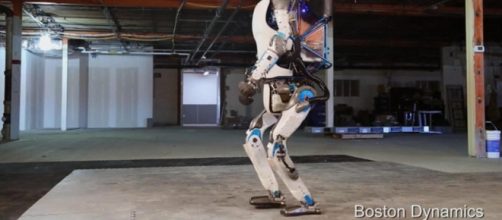When San Francisco, among other cities, decided to give people a “living wage” by bumping up the minimum wage to $15 an hour, they were surprised as only big government people can be when businesses started to automate. Jobs that were formerly performed by humans, like hamburger flipping and deliveries, are starting to be performed by robots. Low-income people with few skills are being hurt the most. San Francisco, which is at once one of the more leftwing cities and one of the communities with the most income disparity (two characteristics that are related) is now scrambling to do something about the rise of the robots.
A City Supervisor named Jane Kim is mulling a tax on robots.
The way such a system would work is that firms that displaced human employees with robots would be required to pay the city of San Francisco for the privilege. The money would, in theory, be used for job retraining or a program for basic income support, in which the city pays people just for being alive.
The problem of jobs being destroyed by technology is an ancient one. The industrial revolution eliminated a lot of farm and home craft jobs but also created a great many factory jobs. When manufacturing started to be automated, a lot of low skilled people went into service jobs. Now the service sector is starting to be automated, helped along by madcap minimum wage policies, and right now it is uncertain where the new jobs are coming from.
Oddly, Isaac Asimov warned us that robots were going to take peoples’ jobs in Science Fiction Stories such as “The Caves of Steel” which was published in 1953. Asimov even predicted social unrest as a result of job dislocation. So it is not as if society had not been given time to prepare.
The solution to the problem is not entirely obvious, though experience tells us that a big government, one size fits all program is likely to fail and waste a lot of money as well. The first step should be an exhaustive analysis of how automating service jobs will affect the economy and what sort of other occupations might be created as a result.
Some of the jobs of the future might be robot repair people, remote controllers of such devices as driverless cars, and customer service where the human touch is still required.
These things have a way of shaking themselves out sooner rather than later.
Maybe government, instead of slapping a punitive tax, could provide incentives for companies which retain human employees, retraining them for new positions, and so on. Such a system would leave the solution to the private sector, which tends to be more nimble that a government bureaucracy.

